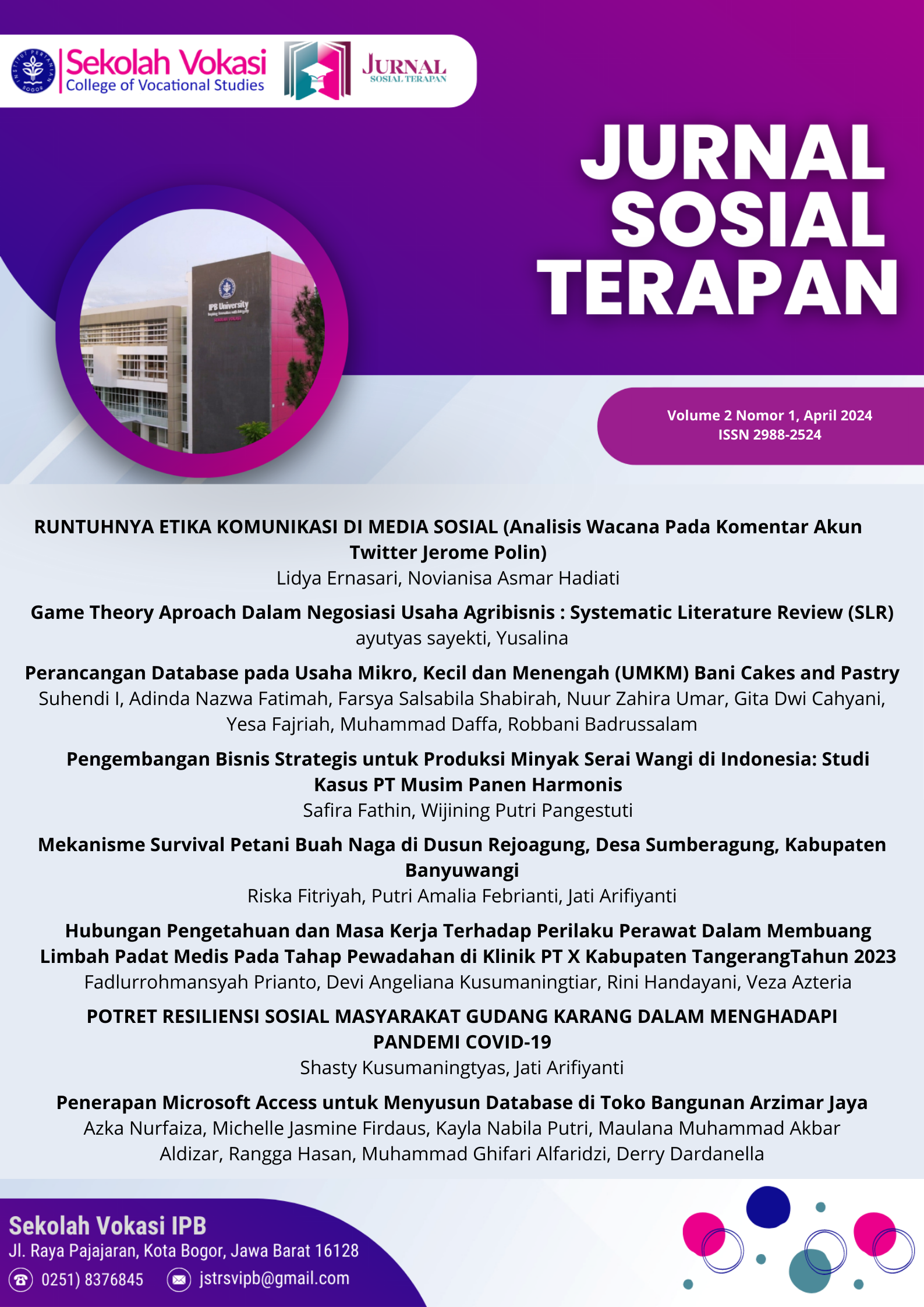Pengembangan Bisnis Strategis untuk Produksi Minyak Serai Wangi di Indonesia: Studi Kasus PT Musim Panen Harmonis
Strategic Business Development for Lemongrass Oil Production in Indonesia: A Case Study of PT Musim Panen Harmonis
Abstrak
This research examines the potential for business development in the agricultural sector of Indonesia, with a focus on the essential oil commodity derived from aromatic plants, particularly lemongrass oil (Cymbopogon winterianus). The lemongrass oil business trend continues to grow due to increasing demand, particularly for fragrances, household products, and pharmaceuticals. This study aims to analyze the company's internal and external environmental conditions, which will be represented through the nine elements of the Business Model Canvas (BMC).Using a case study approach, this research combines primary data from interviews with company personnel and secondary data from relevant literature. These data are then used to design a business model by categorizing the analysis results into the nine BMC elements. Subsequently, validation is performed for each BMC element, considering the company's internal and external factors. These factors are grouped into strengths, weaknesses, opportunities, and threats (SWOT) in the SWOT analysis.
The results of validating the nine BMC elements and the SWOT analysis are the basis for improving PT Musim Panen Harmonis' business model. The research findings recommend several strategies for the company's business development involving improvements in all BMC elements. The SWOT analysis identifies various alternative strategies, such as expanding into the SME market, enhancing digital marketing effectiveness, diversifying product offerings, improving product packaging, and offering promotional pricing.







